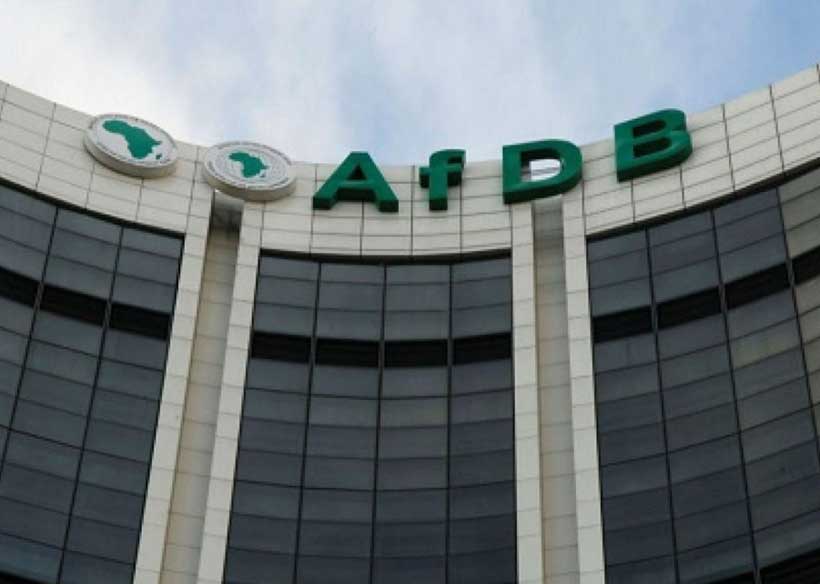AfDB Urges Capital Reforms to Accelerate Kenya’s Inclusive Development
Titled “Making Kenya’s Capital Market Work Better for its Development”, the report lays out strategic reforms to optimize the use of Kenya’s fiscal, financial, natural, business, and human capital.

- Country:
- Kenya
The African Development Bank Group (AfDB) has released a pivotal Country Focus Report (CFR) for Kenya, offering a comprehensive roadmap to unlock the country’s full capital potential and transform its economy into an engine of inclusive, sustainable development. Titled “Making Kenya’s Capital Market Work Better for its Development”, the report lays out strategic reforms to optimize the use of Kenya’s fiscal, financial, natural, business, and human capital.
Unveiled in Nairobi, the report is designed to stimulate high-level policy dialogue and guide reform implementation across sectors. It comes at a critical moment as Kenya seeks to recover from macroeconomic shocks and deliver on its ambitious Bottom-Up Economic Transformation Agenda (BETA).
Economic Overview: Resilience Amid Challenges
Despite global economic headwinds, Kenya’s economy grew by 4.6% in 2024, outperforming the global average growth rate of 3.3%. However, growth was tempered by low industrial output, constrained investment, and climate-related disruptions, according to the CFR.
Still, the country’s macroeconomic fundamentals are improving. Inflation fell to 3.8% in May 2025, down from a peak of 9.6% in 2022, thanks to prudent monetary and fiscal policy. The Kenya Shilling appreciated from Ksh159.7 per USD in January 2024 to Ksh129.3 by end-May 2025, signaling improved investor confidence.
Looking ahead, Kenya’s GDP is projected to expand by 5.3% in 2025, driven by agricultural recovery, service sector growth, and the government’s targeted policy interventions.
Unlocking the Capital Puzzle
The CFR diagnoses Kenya’s capital assets across five pillars:
-
Fiscal Capital: Burdened by high debt levels and limited revenue mobilization capacity.
-
Business Capital: Constrained by low innovation, limited financing, and MSME fragility.
-
Financial Capital: Marked by shallow capital markets and uneven access to credit.
-
Natural Capital: Affected by resource degradation, limited value addition, and climate vulnerabilities.
-
Human Capital: Undermined by skills mismatches, low learning outcomes, and youth unemployment.
Despite progress in infrastructure and services, AfDB economists warned that capital quality remains weak, and structural constraints persist due to regulatory bottlenecks, limited institutional capacity, and policy fragmentation.
“To unlock Kenya’s capital for development, we must all work differently,” emphasized George Kararach, AfDB’s East Africa Lead Economist, speaking on behalf of Alex Mubiru, the Bank’s Director General for East Africa.
Key Recommendations: A New Capital Strategy
To transform Kenya’s development trajectory, the CFR proposes a coordinated, inclusive capital strategy, anchored on bold reforms and strategic partnerships:
-
Fiscal Capital:
-
Broaden the tax base and integrate the informal sector.
-
Enhance digital tax administration and improve compliance.
-
-
Financial and Business Capital:
-
Expand access to affordable credit for MSMEs.
-
Deepen capital markets, develop green bonds, and mobilize diaspora remittances.
-
Promote public-private partnerships (PPPs) to de-risk investment.
-
-
Natural Capital:
-
Accelerate value addition in agriculture and mining.
-
Establish robust carbon market frameworks and strengthen natural capital accounting.
-
-
Human Capital:
-
Align skills development with future job markets in green growth, digital innovation, and manufacturing.
-
Strengthen university–industry collaborations and enhance technical and vocational education (TVET) systems.
-
National Voices and Stakeholder Engagement
Dr. Kenrick Ayot, speaking on behalf of Kenya’s Cabinet Secretary for the National Treasury, reaffirmed the government’s commitment to structural reforms, noting that the country’s strong growth reflects the resilience of a well-diversified economy.
A panel discussion following the report’s launch featured representatives from the Kenya National Chamber of Commerce and Industry, the Capital Markets Authority, and Kenyatta University. Panelists emphasized:
-
Channeling the $5 billion in annual diaspora remittances into productive investment through structured diaspora bonds and collective investment schemes.
-
Enhancing investor confidence through regulatory transparency and robust corporate governance.
-
Empowering women and youth as drivers of capital mobilization and innovation.
-
Supporting MSMEs with financing, capacity-building, and market access.
-
Reducing the cost of capital to stimulate entrepreneurship and competitiveness.
Audience members echoed these priorities and stressed the urgency of aligning education with market demand, developing rural financial systems, and removing policy duplication between counties and national institutions.
Alignment With Strategic Agendas
The CFR’s findings and proposals are fully aligned with:
-
Kenya’s Vision 2030 and the BETA development agenda
-
The African Union’s Agenda 2063
-
AfDB’s Ten-Year Strategy (2024–2033)
-
The Jobs for Youth in Africa Strategy (2016–2025)
-
The UN’s Sustainable Development Goals (SDGs), particularly SDG 8 (Decent Work and Economic Growth) and SDG 9 (Industry, Innovation, and Infrastructure)
The Road Ahead
The AfDB’s report signals a strong commitment to supporting Kenya’s economic transformation through evidence-based policy guidance, technical assistance, and development finance.
By mobilizing domestic capital, reducing reliance on external borrowing, and empowering its people, Kenya can pave the way toward a more resilient, equitable, and self-sustaining economy—one that not only drives growth but delivers tangible improvements in the lives of its citizens.
ALSO READ
Construction Federation of India (CFI) Hosts Flagship Conference 2025: "Redefining India's Infrastructure Growth: Next-Gen Solutions for a Viksit Bharat"
Amazonia Bonds Platform Launched by IDB and World Bank to Drive Green Finance
Assam CM Himanta Biswa meets Union Minister Nitin Gadkari; reviews progress of infrastructure projects
Assam CM meets Gadkari, discusses key infrastructure projects in state
NZ Launches Market Sounding on Toll Concessions to Boost Road Infrastructure










